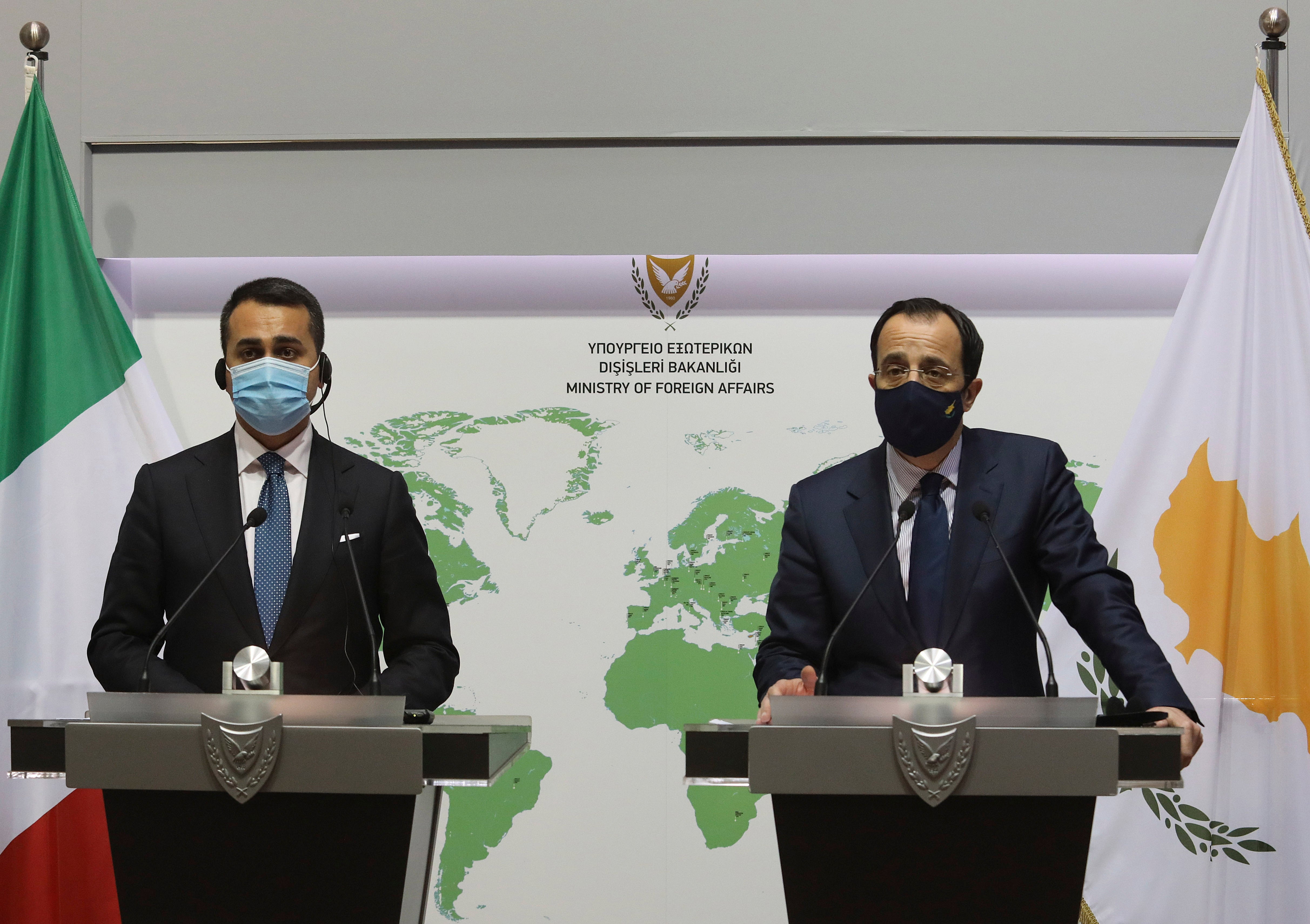Italy rejects two-state deal for ethnically divided Cyprus
Italy’s foreign minister says that his country strongly disapproves of any deal to reunify ethnically divided Cyprus that doesn’t conform to an already agreed-upon federal framework that’s spelled out in United Nations resolutions

Your support helps us to tell the story
From reproductive rights to climate change to Big Tech, The Independent is on the ground when the story is developing. Whether it's investigating the financials of Elon Musk's pro-Trump PAC or producing our latest documentary, 'The A Word', which shines a light on the American women fighting for reproductive rights, we know how important it is to parse out the facts from the messaging.
At such a critical moment in US history, we need reporters on the ground. Your donation allows us to keep sending journalists to speak to both sides of the story.
The Independent is trusted by Americans across the entire political spectrum. And unlike many other quality news outlets, we choose not to lock Americans out of our reporting and analysis with paywalls. We believe quality journalism should be available to everyone, paid for by those who can afford it.
Your support makes all the difference.Italy strongly disapproves of any deal to reunify ethnically divided Cyprus that doesn’t conform to an already agreed-upon federal framework that’s spelled out in United Nations resolutions, the Italian foreign minister said on Tuesday.
Luigi Di Maio said he assured his Cypriot counterpart, Nikos Christodoulides, after talks that Italy “very resolutely rejects” any peace proposals that fall “outside the parameters of existing agreements and United Nations decisions.”
Di Maio’s remarks come amid Turkish and Turkish Cypriot calls to put federation aside as a compromise solution to end the east Mediterranean island nation’s 46-year split, after numerous rounds of fruitless, U.N.-facilitated negotiations. They say the parties should instead forge an arrangement based on two equal states.
U.N. Chief Antonio Guterres will host an informal meeting Apr. 27-29 in Geneva of the rival Greek and Turkish Cypriot sides as well as the island’s ‘guarantors’ — Greece, Turkey and former colonial ruler Britain — to gauge chances of resuming peace talks.
Cyprus was split in 1974 when Turkey invaded in the wake of a coup aiming at union with Greece. Turkish Cypriots declared independence in the island's northern third nearly a decade later, but only Turkey has recognized it.
The last major push to resolve the issue collapsed in 2017. The disagreement continues to inflame tensions over energy reserves in the east Mediterranean and undermine Turkey’s troubled bid for European Union membership.
Ankara and the leader of the breakaway Turkish Cypriots, Ersin Tatar, insist that a “cooperative relationship” between two states is their “new vision” that would break decades of negotiations deadlock.
Tatar also said he doesn't want the European Union to be involved in any peace talks because of any apparent pro-Greek Cypriot bias. Cyprus joined the EU in 2004, but only the internationally recognized south enjoys full benefits.
EU Foreign Affairs Chief Josep Borrell this week called Cyprus' division “clearly an EU problem" and said that the sooner the bloc “becomes fully involved in the renewed settlement talks, the better."
An overwhelming majority of Greek Cypriots reject any deal that would legitimize the island’s partition.
Di Maio said he and Christodoulides discussed bolstering energy cooperation as Italian energy company Eni and partner Total of France have secured oil and gas exploration and drilling rights in seven of 13 offshore ‘blocks’ inside Cyprus’ exclusive economic zone.
Turkey, which doesn’t recognize Cyprus as a state, disputes the Cypriot government’s claims to those waters, insisting that they infringe on Turkish Cypriot rights to the island’s potential mineral wealth. Ankara also claims much of Cyprus’ economic zone as its own and has sent survey and drill ships under naval escort to carry out a search for hydrocarbons there.
Di Maio said he underscored his “complete solidarity” with Cyprus over “provocations and unilateral actions” that harm the island’s sovereign rights and which “cannot be tolerated.”
“It must be clear that Italy stands by the side of Cyprus and Greece against any violation of their rights,” said Di Maio.
However, the Italian minister said energy prospecting should promote cooperation rather than friction and said his country fully backs an EU proposal to hold a multilateral conference on the eastern Mediterranean.